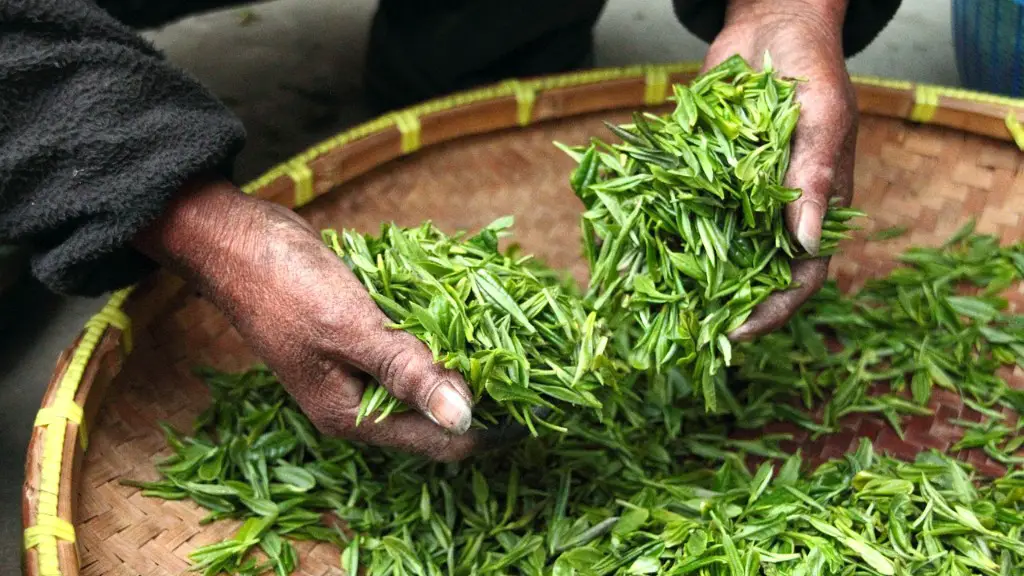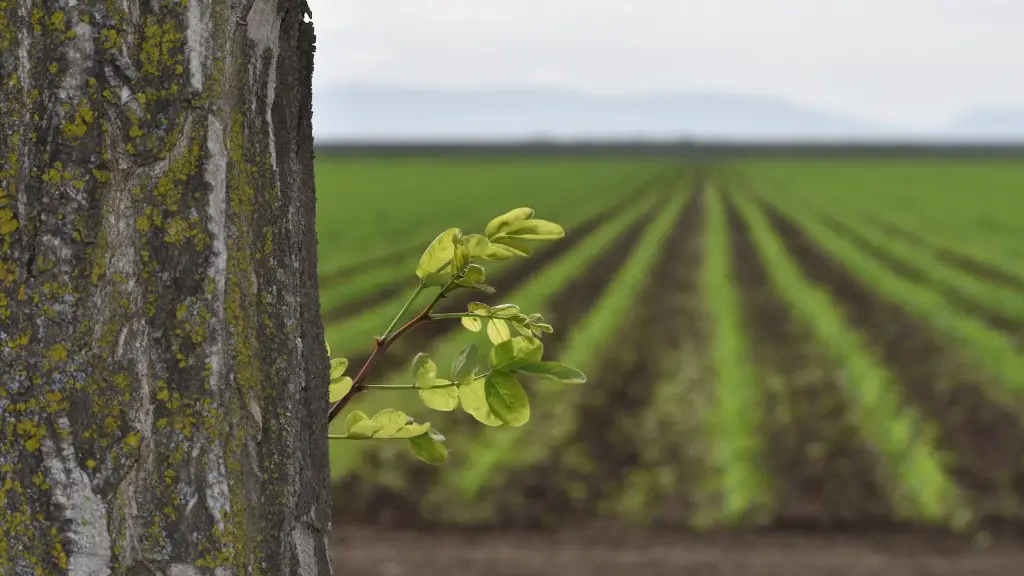Adjuvants are substances that are added to pesticides, herbicides, and fertilizers to improve their effectiveness. The term “adjuvant” comes from the Latin word “adjuvare,” which means “to help.” Adjuvants help to spread the pesticide evenly over the leaves of plants, improve the uptake of the pesticide by the plant, and increase the pesticide’s staying power on the plant so that it is less likely to be washed off by rain or watering.
An adjuvant is a substance that is added to another substance to increase its effectiveness. In agriculture, adjuvants are used to increase the efficacy of pesticides, herbicides, and fertilizers.
What is adjuvant in agriculture?
An adjuvant is a substance that is added to a pesticide product or pesticide spray mixture to enhance the pesticide’s performance and/ or the physical properties of the spray mixture. Adjuvants are often added to increase the efficacy of the pesticide, to reduce the potential for drift, to increase the shelf life of the mixture, or to improve the physical properties of the mixture such as viscosity or spreadability.
Adjuvants are substances that are added to pesticides to improve their effectiveness. There are many different types of adjuvants, each with its own purpose. Nonionic surfactants help the pesticide to spread evenly and penetrate the target surface. Crop oil concentrates improve the efficacy of herbicides by increasing their ability to penetrate plant leaves. Methylated seed oils improve the performance of insecticides and fungicides by making them more water resistant. Buffering agents help to stabilize the pH of the pesticide solution. Antifoam agents prevent the formation of foam when the pesticide is mixed with water. Drift control agents help to reduce the amount of spray that is lost to wind drift. Fertilizers can be added to some pesticides to improve their performance.
What is an adjuvant in pesticides
Adjuvants are added to products to help the pesticide do its job and stay on target. They may be in a formulated product when it’s purchased. Or, they may be added to a mixture before it is applied (tank-mixed). Many adjuvants are surfactants. Surfactants are also called “surface acting agents” or wetter-spreaders.
An adjuvant is a substance that is added to a pesticide to improve its effectiveness. Adjuvants are typically used to increase the rate of absorption of the pesticide into the plant, to improve the distribution of the pesticide within the plant, or to improve the efficacy of the pesticide.
Common examples of adjuvants include surfactants, spreader stickers, crop oils, anti-foaming agents, buffering agents, and compatibility agents. Surfactants are adjuvants that facilitate and accentuate the emulsifying, dispersing, spreading, wetting, or other surface-modifying properties of liquids. Spreader stickers are adjuvants that improve the adherence of the pesticide to the plant surface. Crop oils are adjuvants that improve the penetration of the pesticide into the plant. Anti-foaming agents are adjuvants that prevent the formation of foam when the pesticide is mixed with water. Buffering agents are adjuvants that maintain the pH of the pesticide solution within the optimum range for efficacy. Compatibility agents are adjuvants that improve the compatibility of the pesticide with other substances with which it may come into contact.
Are adjuvants considered pesticides?
Adjuvants are not subject to federal registration, but are considered pesticides under California law.
The most common adjuvants for human vaccinations today are aluminum hydroxide and aluminum phosphate. These adjuvants help to increase the effectiveness of the vaccine by stimulating the immune system.
Is adjuvant a fertilizer?
Most agrochemicals are formulated as wettable powders, emulsifiable concentrates, or water-soluble liquids.Activator adjuvants, such as crop oil concentrates and surfactants, improve the wetting, penetration, and absorption of these agrochemicals. Modifier adjuvants are often added to the spray solution to improve the uniformity of coverage and uptake on the plant surface.
An adjuvant is a substance that is used to increase the effectiveness of another substance. Adjuvants are often used in vaccines to increase the body’s immune response to the vaccine. The most common adjuvants are Freund’s adjuvant, Bacillus Calmette-Guérin (BCG), and Corynebacterium parvum.
What are the types of adjuvants
Adjuvants are substances that are added to vaccines to improve their efficacy. There are several different types of adjuvants, each with its own advantages and disadvantages.
Aluminum adjuvants are the most commonly used type. They are effective at stimulating the immune system and have a long history of safe use. However, they can sometimes cause side effects such as pain and swelling at the injection site.
Freund’s incomplete adjuvant is another common type of adjuvant. It is made from killed bacteria and is very effective at stimulating the immune system. However, it can cause severe side effects in some people, so it is not always used.
Freund’s complete adjuvant is a more potent version of Freund’s incomplete adjuvant. It is made from live bacteria and is very effective at stimulating the immune system. However, it can cause severe side effects in some people, so it is not always used.
Mycobacterium tuberculosis and Bordetella pertusis are two other types of adjuvants that are sometimes used. They are both effective at stimulating the immune system, but they can cause severe side effects in some people, so they are not always used.
Bacterial
Roundup’s main adjuvant is the surfactant polyethoxylated tallowamine, which helps glyphosate penetrate plant cells. This substance is controversial because it has been linked to cancer in animals.
Is neem oil an adjuvant?
Neem oil is a vegetable oil pressed from the fruits and seeds of the neem tree, Azadirachta indica. Located in the Indian subcontinent, the neem tree is a staple in Ayurvedic medicine. In addition to being used as an oil, the neem tree’s leaves and bark are sometimes ground into a powder and added to water to make a paste. The oil has a bitter taste and a strong, pungent odor.
Neem oil is known for its anti-bacterial, anti-fungal, and anti-inflammatory properties. In traditional medicine, it is used to treat a variety of skin conditions, including acne, psoriasis, and eczema. Neem oil is also effective against a number of pests, including mites, mosquitoes, and ants.
In this study, we investigated neem oil as a possible adjuvant for use with entomopathogenic fungi. When used in combination with Metarhizium anisopliae, a fungus that naturally infects and kills insects, neem oil was found to significantly increase the virulence of the fungus. This means that less of the fungus is needed to kill the same number of insects, making
An adjuvant is a substance that is used to enhance the efficacy of a vaccine. Adjuvants may act by a combination of various mechanisms, including the formation of a depot, the induction of cytokines and chemokines, the recruitment of immune cells, the enhancement of antigen uptake and presentation, and the promotion of antigen transport to draining lymph nodes.
What are four functions of adjuvants
vaccines serve various functions in addition to protecting individuals from pathogenic infections. They can provide benefits to both the vaccinated individual and to society as a whole. Vaccines can help to prevent the spread of disease, and they can also help to boost the immune system.
The leaves of many plants, particularly grasses, are coated in a very thin layer of wax. This wax layer can cause water to bead up on the surface of the leaves and run off, rather than being absorbed. When you add a surfactant to Roundup, it helps to break down that wax layer so the Roundup can be more easily absorbed by the plant.
What is another word for adjuvant?
An adjudant is another word for a helper or assistant. This word is often used in the military, where an adjudant is an officer who assists the commanding officer with administrative duties.
Aluminum in adjuvant form poses a serious risk for autoimmunity, long-term brain inflammation, and associated neurological complications. This could have profound and widespread adverse health consequences.
What do adjuvants do with herbicides
An adjuvant is a substance that is added to another substance to improve its effectiveness. In the context of herbicides, an adjuvant is added to the herbicide to make it more effective at killiing plants. Some herbicides do not require adjuvants to work well, while others may work better with adjuvants. The label on the herbicide product will usually indicate whether or not an adjuvant is needed.
The new glyphosate adjuvant (A-178) can improve the spread performance and target plant uptake of glyphosate solutions. The results suggest that A-178 could be a useful tool for reducing the use of glyphosate.
Warp Up
An adjuvant is a substance that is added to another substance in order to increase its effectiveness. In agriculture, adjuvants are used to increase the efficacy of pesticides, herbicides, and fungicides.
An adjuvant is a material that is added to another material to increase its effectiveness. When used in agriculture, adjuvants are often added to herbicides, pesticides, and fertilizers to increase their efficacy. While adjuvants are not required for these products to work, they can often improve the results of their application.





